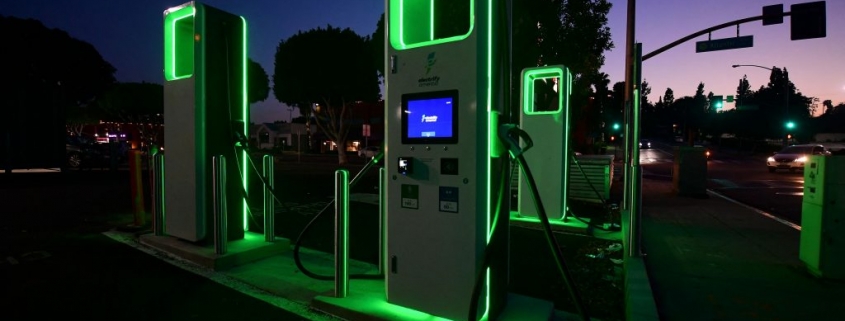The Difference Between Zero-Emissions and Carbon-Neutral
With more electric cars popping up, and pressure to switch to a sustainable future, automakers started using some fancy lingo. Marketing speak is a very real thing, a tactic used to make manufacturers sound like they’re saving the planet. And recently, the two most popular phrases have been “Zero Emissions” and “Carbon Neutral.” But what do automakers mean when they say either of these?
Most automakers are committed to an electric car future.
Every automaker has a different electric car timeline. But in some capacity, all the major brands are heading down the electric path. Though it’s not all about saving the planet, more countries and states are banning the sales of new gas cars. But in one way or another, I’m certain you’ve heard the phrase “zero-emissions future.”
The truth is, electric cars will produce emissions. Maybe not from the tailpipe, but by mining lithium, manufacturing the car, and even charging it at electric car charging stations, they use coal and fossil fuels. The term “zero-emissions” applies solely to the car and certainly paints the automaker in a better light.
But that’s not to say aiming for a zero-emissions lineup is a bad thing. GM is already underway to eliminate gas-powered cars by 2035, and other automakers are following suit. But making all of their cars electric doesn’t entirely solve the problem. Working toward a carbon-neutral future is the next step toward a sustainable one.
What does it mean to be carbon neutral?

Simply put, carbon neutrality means automakers are equally offsetting the damages done by producing electric car. The easiest solution for this is to plant trees that absorb the same amount of carbon their factories emit. Some automakers, like Polestar, aim to make their factories more efficient, using sustainable energy. But carbon neutrality doesn’t mean the company is producing zero emissions.
In the case of electric cars, this is rather interesting. There’s no disputing that building an electric car produces more emissions than creating a gasoline car, thanks to those lithium batteries. So the more automakers shift to electric cars, the more “carbon-neutral” they’ll have to be. Though while going carbon neutral is better than just churning out EVs, is it really enough?
Is going carbon neutral enough?

Rolland Incorporated describes the carbon credits automakers are buying to a car owner claiming they’ve gone carbon-neutral because they ride a bike. It’s a cop-out, enough to save face, but not entirely effective. If we truly want a carbon-neutral future, we have to work on altering how we produce goods entirely.
What we need more than ever is carbon removal, and while electric cars produce fewer emissions throughout their lifetime than typical gas cars, they aren’t removing emissions from the process. It’s just as dirty, if not dirtier, to build that electric car, and we can’t wait for the long-term effects of EVs, we simply don’t have the time.
RELATED: Porsche’s Synthetic Fuel May Actually Make Gas Cars EV-Clean
The post The Difference Between Zero-Emissions and Carbon-Neutral appeared first on MotorBiscuit.







